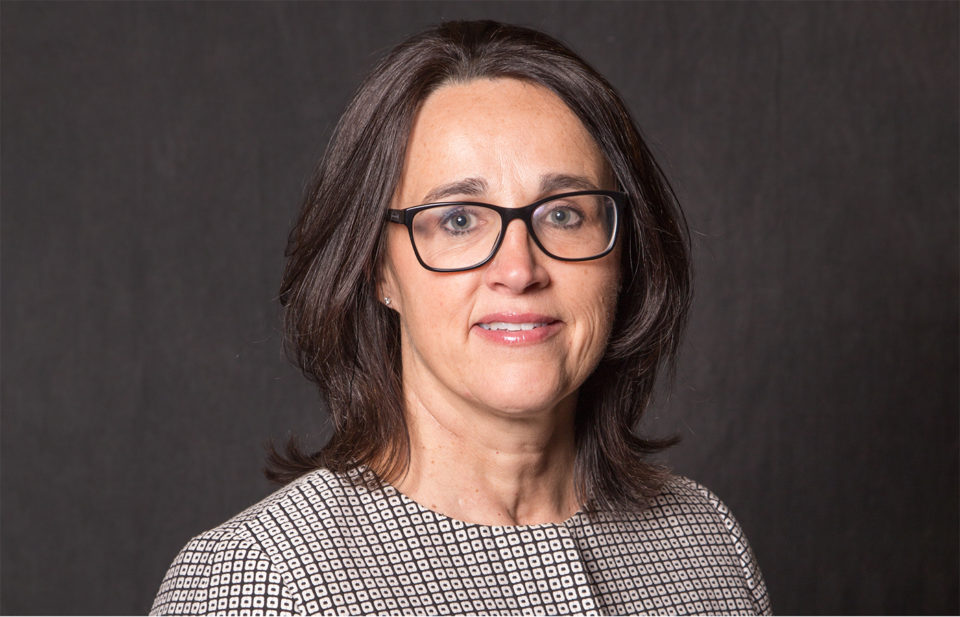
Why should a clinical pharmacist be part of my care team?
Sheila Botts, regional administrator of Clinical Pharmacy Services for Kaiser Permanente in Colorado, provides her expertise on the role clinical pharmacists play in patients’ lives and care.
Do you know your pharmacist?
When people think of a pharmacist, they may picture someone in a white coat standing behind the pharmacy counter. That pharmacist is part of the patient care team and typically works in a retail pharmacy filling prescriptions. There is also another type of pharmacist: a clinical pharmacist.
Clinical pharmacists have completed advanced training to become board-certified pharmacotherapy specialists (BCPS). They work within a health care system or facility providing patient care. As a valued member of the patient care team, clinical pharmacists assist with developing, implementing, monitoring, and modifying medication regimens. They also consult with physicians and other care team members on medication issues.
How do clinical pharmacists support patient care?
Clinical pharmacists are instrumental for doctors and patients. We are more than a white coat; we are medication experts. As a board-certified psychiatric pharmacist, I was drawn to pharmacy because of my love of science and medicine. I quickly learned how important pharmacists are to the health care team to ensure medications are safe, effective, and affordable, and I grew passionate about improving care for people with mental health conditions. Clinical pharmacists address the aspects of treatment where we have the greatest expertise — medications. Our responsibilities include:
- Reviewing medications and making recommendations to adjust or change prescriptions (including medication doses)
- Developing and implementing medication plans in partnership with clinicians
- Educating patients about side effects and medication interactions
- Coordinating medication plans between medical departments and specialties
- Revising plans for medical procedures or when new prescriptions are added
- Empowering patients to feel more confident in managing their chronic conditions
- Addressing barriers to medications
- Fear of potential side effects, not understanding the need for a medication, or cost are all reasons why patients may not take medications as prescribed.
What is the role of a clinical pharmacist at Kaiser Permanente?
At Kaiser Permanente, we provide health care and coverage together. We are Colorado’s largest nonprofit health plan1 and one of the largest multispecialty physician groups in the state. Our Clinical Pharmacy Services team serves as a highly-skilled voice for Kaiser Permanente doctors, clinicians, and members when making drug therapy decisions.
With over 100 clinical pharmacists working with over 70,000 members annually in Colorado, the Kaiser Permanente Clinical Pharmacy Services team provides comprehensive medication management that helps members achieve positive medication results. This team is involved in all aspects of medication management including drug selection, ongoing medication monitoring, and optimization of the medication regimen.
Clinical pharmacists are a valuable resource for Kaiser Permanente doctors because we are uniquely embedded within patient care teams—in all disciplines and specialties. Our integrated health care system makes it easy for doctors and clinical pharmacists to make medication decisions collaboratively through a shared electronic health record.
Utilizing this electronic health record, Kaiser Permanente members diagnosed with chronic conditions like diabetes or heart disease and those taking high-risk medications are automatically assigned a clinical pharmacist to their care team to follow their care and optimize medications as they participate in evidence-based care programs. These no-cost programs are managed by Kaiser Permanente clinicians, not outsourced to other vendors. Individual consultations with clinical pharmacists are also available to every Kaiser Permanente member, no matter their diagnosis.
New members are initially connected to Clinical Pharmacy Services when they transition their care to Kaiser Permanente. Based on the health history information they give to our New Member Connect team or input electronically on kp.org, members will be enrolled in the program. Once enrolled, our team of clinical pharmacy specialists, pharmacists, and technicians help care for members across health plans and specialty areas including Medicare Medication Therapy Management and medication adherence programs for Medicare members, anticoagulation care (blood thinners), diabetes, and oncology. Many of our clinical pharmacists have additional training in an array of specialties, which underscores Kaiser Permanente’s commitment to delivering positive medication outcomes for our members.
What are the benefits of Kaiser Permanente’s approach to pharmacy care?
Through of the integration of Clinical Pharmacy Services, Kaiser Permanente members are more likely to take their medications as directed, less likely to spend time in the hospital, and better able to achieve their health goals. Our results speak for themselves:
- More than 90% of Kaiser Permanente Medicare members adhere to diabetes, blood pressure, and cholesterol medications resulting in improved disease outcomes.2
Comprehensive management by our clinical pharmacists reduced the risk of dangerous side effects, including bleeding, stroke, and death, by over 30% among patients taking blood thinners.3
What do members have to say about clinical pharmacy at Kaiser Permanente?
Greta Walker recently transitioned her health care and coverage to Kaiser Permanente. When searching for a new health plan for herself and her husband, Greta hoped to find support to help manage her challenging health needs in one place, including multiple prescription medications that had been filled at different pharmacies across Denver.
After meeting with the Kaiser Permanente New Member Connect Team, Greta was introduced to one of our clinical pharmacists to review and transition her medications. During the visit, Greta watched in real-time as her prescriptions populated in her electronic health record. She left feeling confident that she could then drive to one Kaiser Permanente medical office and pick up her prescriptions that had been optimized to meet her specific health needs.
About Sheila Botts, PharmD, FCCP, BCPP
Dr. Sheila Botts is the Regional Administrator of Clinical Pharmacy Services for Kaiser Permanente in Colorado. She is also a Clinical Associate Professor at the University of Colorado Skaggs School of Pharmacy and Pharmaceutical Sciences. At Kaiser Permanente, she has responsibility and oversight of pharmacy quality, drug utilization management, and ambulatory clinical pharmacy services. These programs ensure safe, effective and affordable medication use across the region’s patient care services.
After joining Kaiser Permanente in Colorado in 2011, Sheila has held roles as a board-certified clinical pharmacy specialist in psychiatry as well as supervisory and manager roles for clinical pharmacy and outcomes research programs. She has supported efforts to implement regional measurement-based care programs for depression and population monitoring gaps, assessment of medication adherence programs, and dissemination of pharmacy best practices. Sheila also supports academic community partnerships supporting pharmacy education, research and residency training programs.
Sheila has a Bachelor of Science and Doctor of Pharmacy degree from the University of Kentucky and completed post-doctoral residency and clinical sciences fellowship training at the University of Texas Health Science Center San Antonio.
- Kaiser Permanente Colorado is composed of the nonprofit Kaiser Foundation Health Plan of Colorado and the for-profit Permanente Medical Group.
- 2024. CMS.gov. Part C and D Performance Data.
- Elise Phelps, et al., “Effect of increased time in the therapeutic range on atrial fibrillation outcomes within a centralized anticoagulation service,” Thrombosis Research, March 2018.
